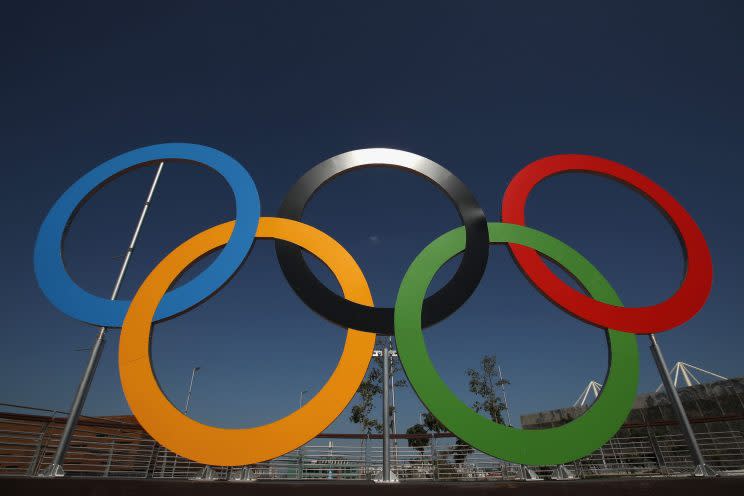Olympics 2016: Will controversial changes help boxing's popularity? Probably not...

RIO DE JANEIRO – There was a time not that long ago when the gold medal matches in boxing were a marquee event in the Olympics, every bit as much of a centerpiece as the 100 meters or the gymnastics all-around.
American gold medalists, from Cassius Clay in 1960 to Joe Frazier in 1964 to George Foreman in 1968 to Sugar Ray Leonard in 1976, became instant mainstream superstars.
Olympic boxing is mostly an afterthought to Americans these days. Perhaps it was the outright robberies that cost Roy Jones Jr. (in 1988) and Floyd Mayweather Jr. (in 1996) gold medals that turned the country off. Perhaps it was the lack of television coverage on the main NBC channel, though pushing boxing onto cable was largely in response to declining ratings.
No doubt much of the loss of interest was a reaction to the byzantine computer scoring system introduced at the 1989 World Championships that turned people off. It was introduced largely in response to the laughable verdict that saw Park Si-Hun of host South Korea defeat Jones in 1988.
Jones outlanded Park 86-32 and, according to CompuBox, had a far higher connect percentage, 28-17. Still, the judges called it for Park. That call led directly to the change in scoring that was in place from the 1992 Games in Barcelona, when Oscar De La Hoya won gold, through London in 2012, when the American men failed to medal.
AIBA, which runs Olympic boxing, made significant changes to the rules that will take effect at the 2016 Olympic Games in Rio de Janeiro. When boxing competition begins on Saturday, viewers will notice three things: a different scoring system, no headgear and the presence of professionals in the field.
The computerized scoring system is gone, replaced by three judges who score the bouts on the 10-point must system common to fans of pro boxing. In that system, the winner of a round is given 10 points and the loser nine points or less.
Scores will be announced as 3-0 or 2-1, however.
The most noticeable change is that male boxers will no longer wear headgear. AIBA determined that it is actually safer for the fighters not to wear it. While there is mixed opinion on that issue throughout the sport, the impact it will have on the Games is clear: There will be a fighter who wins but can’t make it to the next round because of cuts. If that fighter is a medal favorite, take cover before the storm hits.
And finally, there are pros who are going to compete in these Olympics. The most notable is Cameroon’s Hassan N’Dam, who is 34-2 with 20 knockouts as a pro and lost middleweight world title bouts to David Lemieux and Peter Quillin.
The others are former world flyweight champion Amnat Ruenroeng of Thailand and 15-0 Italian featherweight Carmine Tommasone.
These changes appear to have been made largely in a bid to recapture the American audience.
It’s not going to work, not until the American boxing program is revived in the first place and someone from the Olympic team becomes a star again.
Through the 1980s, large international amateur competitions were televised on network TV. Now, it’s hard to get the best professional fights on premium cable, let alone amateurs that large swaths of the viewing public hasn’t heard of previously.
The scoring system will help, but only if it is proven to be fair. The Jones-Park fight was scored by judges without help of computers, and that was a complete fiasco.
So that’s going to take time as well.
It was easy to thrill at the 1992 Dream Team’s antics, with five of the greatest players to have ever lived, putting on a slam-dunk competition against the likes of Angola, but it’s an entirely different thing to see physically mature, seasoned professional boxers pummeling amateurs.
There are a lot of pros who probably wouldn’t do well in the amateur system at this stage, largely because they haven’t trained in it. But give them time and it will turn into a bludgeoning fairly quickly.
The headgear issue is one sure to bring controversy. Sugar Ray Leonard’s brilliant smile was a key component in his success in 1976 and beyond. Fans saw him on television and were captivated not only by his brilliant talents but also by his charisma and captivating smile.
Now, though, if an elite fighter gets cut by a head butt and is forced out of the tournament, there will be an uproar the likes of which haven’t been seen in Olympic boxing since the Jones-Park controversy nearly 30 years ago.
Something has to be done to invigorate Olympic boxing, but are these changes going to do it? Unlikely.
The best bet is that in 2020 in Tokyo, they’ll still be discussing ways to make Olympic boxing more appealing to the masses. That’s going to be a debate that likely is going to continue for many Olympiads to come.
Popular Olympic video on Yahoo Sports:

 Yahoo Sports
Yahoo Sports 


